Austin meets Thai leader as part of strategy of building 'alliances and partnerships'
US Secretary of Defense Lloyd Austin has met with Thailand’s prime minister as part of a broader strategy to develop Washington’s “alliances and partnerships" in the region amid rising tensions with China.
Thailand and the United States are longtime military allies, but their relations somewhat cooled after the 2014 coup that brought Prayuth Chan-ocha to power. The two countries were close allies during the Vietnam War, and in 2003, Washington designated Thailand a major non-NATO ally.
The Pentagon said in a statement that the Monday meeting was an important step in developing US-Thai relations, in particular their military cooperation.
Thank you, @prayutofficial, for the warm welcome and productive discussion today. I will leave Thailand tomorrow as confident as ever about the alliance between our two nations. pic.twitter.com/iF5VddNb26
— Secretary of Defense Lloyd J. Austin III (@SecDef) June 13, 2022
China has made significant diplomatic, economic and security inroads into Thailand since Prayuth came to power in 2014. Austin’s visit to the country, his first as defense secretary, is widely viewed as being part of an effort to counterweight China’s growing influence in the region.
China over the past decade has been trying to expand its alliances in Southeast Asia through both aid and investment initiatives, including its “Belt and Road” projects, and use of its navy to assert its claims over disputed areas of the South China Sea.
Tensions between the US and China have significantly escalated, particularly over the issues of Taiwan and the South China Sea.
In a speech Saturday at a security summit in Singapore, Austin accused China of threatening to jeopardize the security and prosperity of the region through what he called “provocative and destabilizing military activity near Taiwan.”
The Pentagon chief said Washington’s “unparalleled network of alliances and partnerships has only deepened” in the past year.
In May, the Biden administration announced its Indo-Pacific Economic Framework, or IPEF, as part of its strategy for the region. Seen as a means to counter China, the framework involves 13 countries but excludes China, and aims to solidify partnerships in crucial economic and trade matters.
Addressing the Shangri-La Dialogue security summit , Chinese Defense Minister Gen. Wei Fenghe said the US-led framework will only lead to “conflict and confrontation.”
“To us, the strategy is an attempt to build an exclusive small group in the name of a free and open Indo-Pacific, to hijack countries in our region and target one specific country,” he said.
General Wei also accused the United States of attempting to set Southeast Asian countries against China and seeking to expand the reach of its influence in the region “under the guise of multilateralism.”
Austin and General Wei met on the sidelines of the Shangri-La Dialogue summit for nearly an hour on Friday. Taiwan was one of the topics of the talks between the two defense chiefs, with both sides standing firm in asserting their opposing views on the self-ruled island.
Despite publicly recognizing China’s sovereignty over Taiwan under “the One China policy,” the United States continues to remain the island’s most important international supporter and arms supplier, a source of constant tensions between Washington and Beijing.
US officials and military commanders worry that China might be willing to go to war over Taiwan in the coming years, something General Wei told his American counterpart Beijing would not shy away from if Taiwan declared independence.
“If anyone dares to split Taiwan from China, the Chinese army will definitely not hesitate to start a war no matter the cost,” Wei said, while warning that any effort to use Taiwan to contain China will never prevail.
US legislation allows Washington to bolster Taiwan’s military capabilities and possibly intervene militarily to defend the island if war breaks out. President Joe Biden has signaled several times the US military is ready to step in if China launches an attack.
However, Austin on Saturday asserted that Washington did not support an independent Taiwan. “Our policy hasn’t changed, but unfortunately that doesn’t seem to be true for the PRC,” the Pentagon chief said, referring to the People’s Republic of China.
China has responded angrily to Washington’s increasing military and diplomatic support for Taiwan, stepping up its military activity near the island.
Mother’s Day: Sareh Javanmardi’s inspiring journey as Paralympic champion and mother
Russia downs over 40 Ukrainian drones as Putin vows 'destruction' on Kiev
VIDEO | Yemen: A bone in Israeli neck
D-8’s role in Iran’s economy after Cairo summit
China slams US as ‘war-addicted’ threat to global security
China ‘firmly opposes’ US military aid to Taiwan
VIDEO | Press TV's News Headlines
President Yoon Suk Yeol to be removed from office


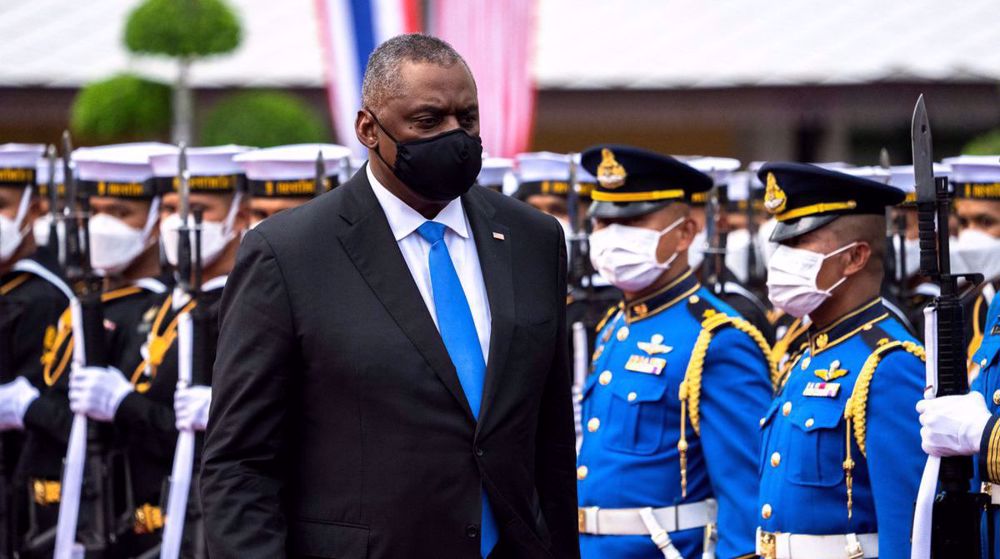
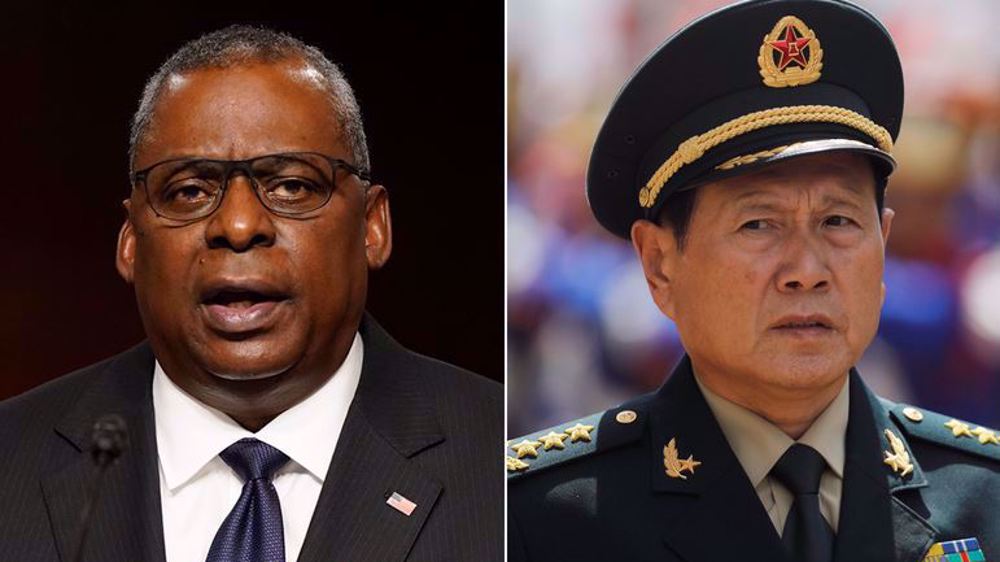
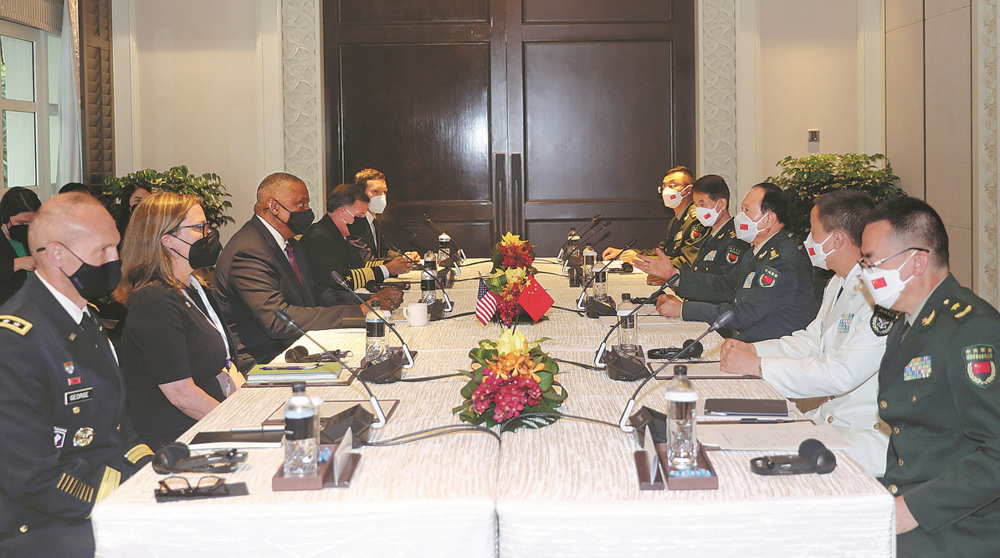






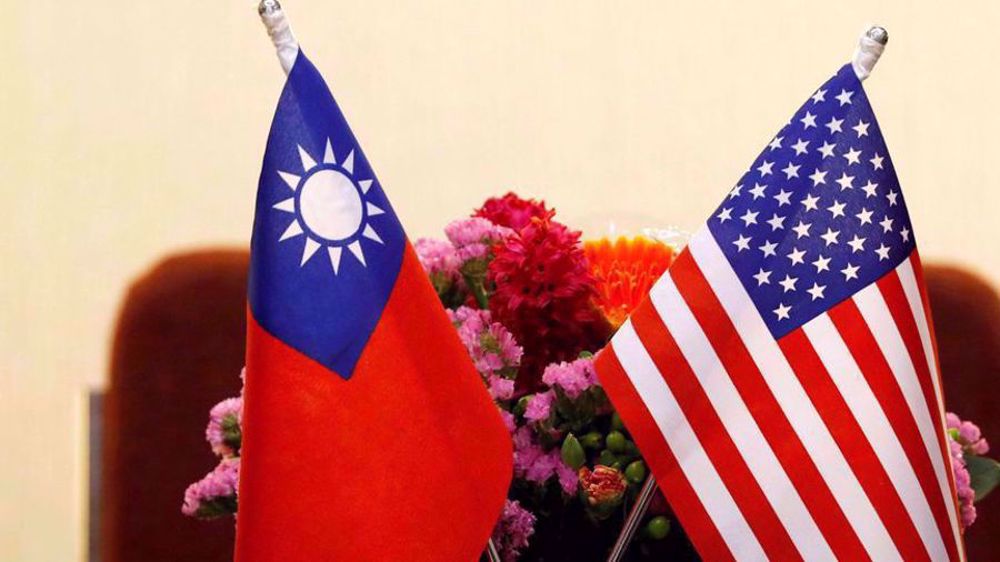
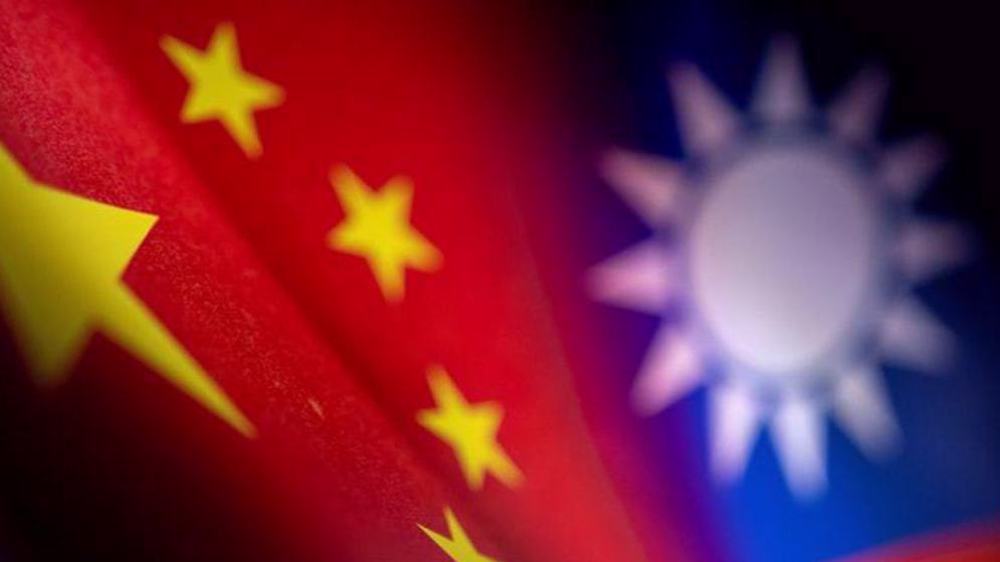
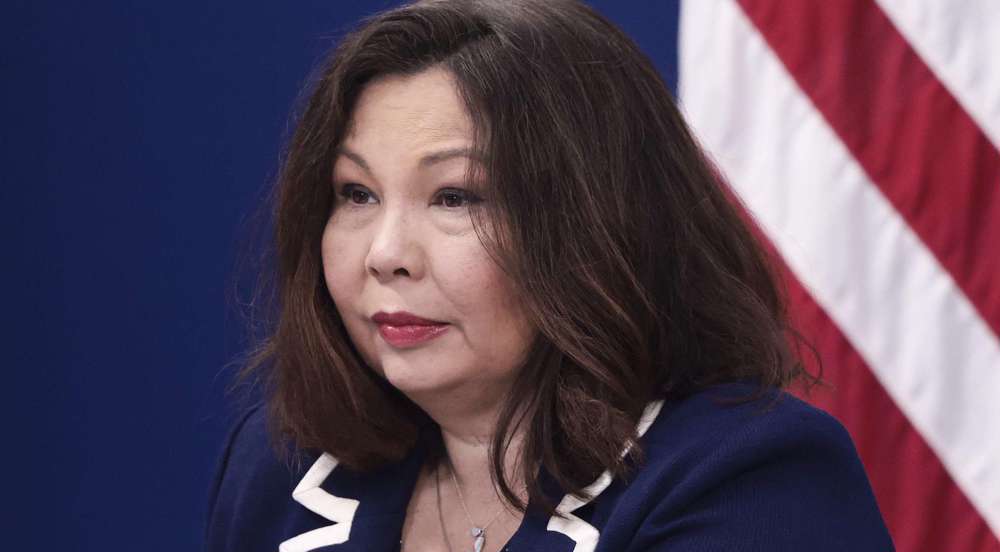
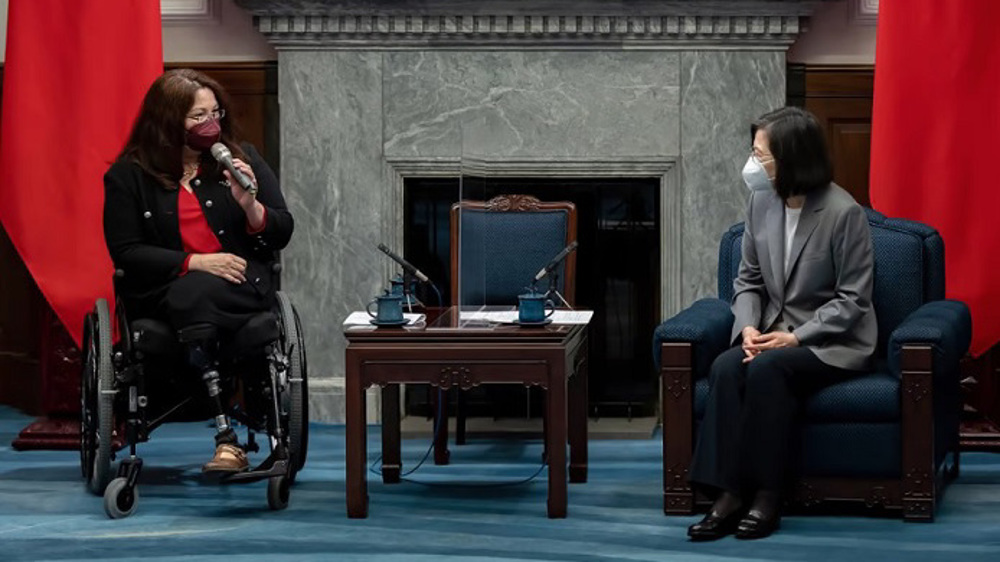

 This makes it easy to access the Press TV website
This makes it easy to access the Press TV website